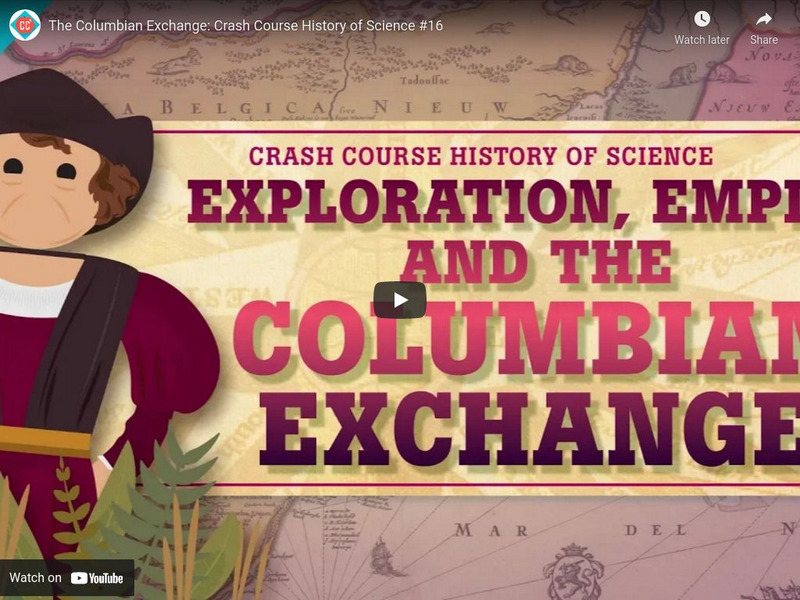Crash Course
Ecology: Crash Course History of Science #38
Relive the birth of ecology and its different branches. The narrator of the 37th video lesson in a History of Sciences series explains the systems nature of ecology. He then explores the major advances of ecology from a historical...
Crash Course
Bodies and Dollars: Crash Course History of Science #41
Advances in medical and pharmaceutical treatments have an interesting history. A video discusses these advances from a personal perspective. The narrator explains how changes in medical technology affect humans and the world around them.
Crash Course
Life and Longevity: Crash Course History of Science #44
In the future, will medical treatment be tailored to specific DNA? An episode of the Crash Course History of Science discusses the biotechnology of modern medicine. The narrator explains the history of DNA research and how that applies...
Crash Course
Biotechnology: Crash Course History of Science #40
Biotechnology is a relatively new science, but the history of the science that made it possible goes back to the early 1900s. Take a tour through the history of scientific research that led to the possibility of biotechnology. The lesson...
Crash Course
Crash Course History of Science #12: The Scientific Revolution
So, what exactly is a scientific revolution? Is it more than just moments in time Historians use to mark the beginning and ending of things through time? In this video, explore some ideas and how they fit into science and the search to...
PBS
Pbs Learning Media: Victoria, Season 3: The Great Exhibition
Explore the landmark event that came to symbolize the Victorian era, the 1851 Great Exhibition in London, in this media gallery from the 2019 series Victoria, Season 3, Masterpiece. Despite the surrounding controversy, the success of...
Crash Course
Crash Course History of Science #18: The New Chemistry
The Scientific Revolution in Chemistry did not begin until the 1770s. Trace the developments in Chemistry from the Phlogiston Theory to the New Chemistry in this video. Learn how chemistry became more quantitative and less qualitative...
National Science Foundation
National Science Foundation: Green Revolution: Discover
As scientific researchers explore cave formations, learn how science and engineering have resulted in advancements that have changed our lives dramatically. Now more than ever, the boundaries between science, technology, and engineering...
Crash Course
Crash Course History of Science #16: The Columbian Exchange
Revolution in Europe during the 1400s through the 1700s came in many forms - political, cultural, religious, and scientific. But we can't fully understand this idea without "exploring" another one - the so-called Age of Exploration. This...
Crash Course
Crash Course History of Science #17: Newton and Leibniz
Who do we have to thank for inventing calculus? Whether you love or hate it, the credit goes to two people - Sir Isaac Newton and Gottfried Wilhelm von Leibniz. Learn about their myriad of accomplishments in science and math during the...
PBS
Pbs Teachers: Kart Racing
Explore how gears work, and examine the gears on a race kart. Watch two kids use the scientific method to find out which gear gives them the best performance.
Bozeman Science
Bozeman Science: Engaging in Argument From Evidence
Paul Andersen explains the importance of argumentation in improving both understanding and design. This video begins with a discussion of the heliocentric and geocentric model of the Universe that eventually lead to the Copernican...










